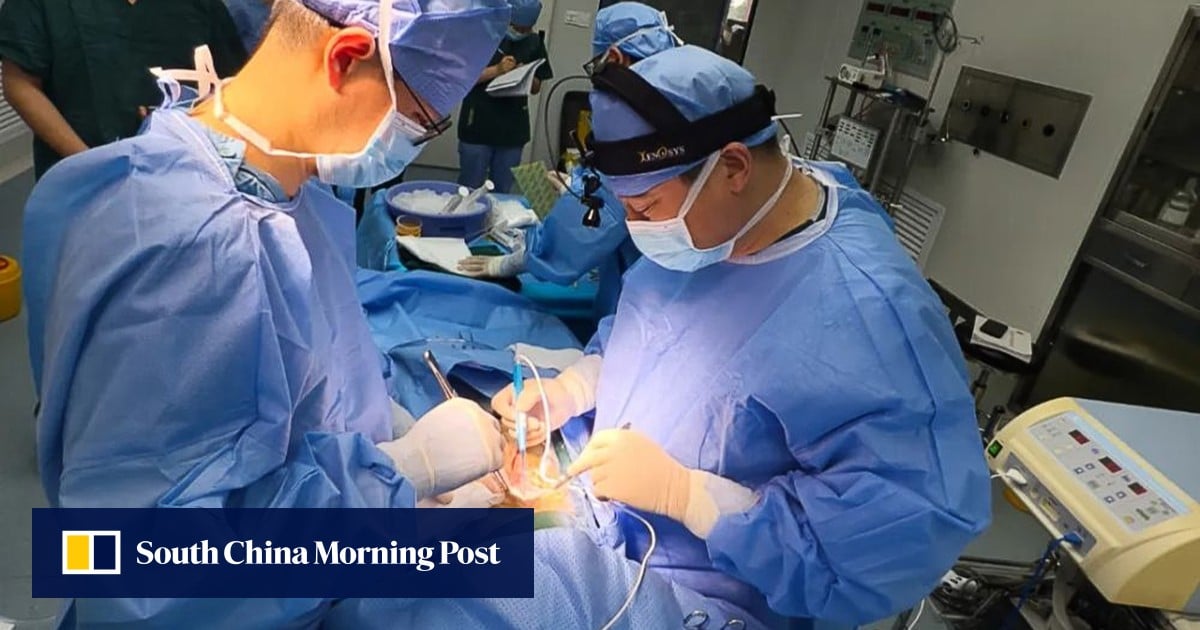World
World first: living cancer patient in China receives pig’s liver transport

As of May 24, “the patient was able to walk freely, no hyper-acute or acute rejection reactions were found, the coagulation system was not impaired, and liver function had returned to normal”, the university said.
The patient, who had been suffering end-stage kidney failure, died suddenly earlier this month. Massachusetts General Hospital in Boston, where the procedure was carried out, said there was “no indication” that his death was due to the transplant.
A second US patient, who received a gene-edited pig’s kidney in April, is still alive and “brings hope for the development of xenotransplantation from pigs to humans”, Anhui Medical University said.
But the complexity of the liver – which plays a role in major bodily functions like metabolism and immunity – poses a greater challenge than kidneys and hearts, leading US researchers to suggest that its function “is too powerful” for xenotransplantation, Anhui Medical University said.
The latest feat indicated that “Chinese scientist’s xenotransplantation technology has reached the forefront of the world and will become one of the most important breakthroughs in the medical field”, it said.
China’s organ transplant ethics committee approved the study because the patient had a large tumour in the right lobe of his liver that was not responding to other treatment and posed a rupture risk.
The 514 gram (18 oz) pig’s liver, which contained 10 gene edits to prevent organ rejection and dysfunction, was transplanted into the patient after doctors confirmed the left lobe of his liver was unable to provide sufficient function on its own.
“Currently, the transplanted pig liver secretes about 200ml (nearly 7 fl oz) of golden bile every day,” said the hospital’s director Sun Beicheng, according to a report by People’s Daily.
Sun said that scans confirmed “the blood flow in the hepatic artery, portal vein and hepatic vein of the transplanted pig liver is completely normal” a week after the surgery.
According to the university, the success of this operation will make it possible “for xenotransplantation of pig liver to enter the clinic”.
The recent successes of Chinese and US researchers have raised hopes that transplants of genetically edited organs from pigs could offer a solution to global organ shortages, with demand greater than the supply of human organs.
But despite the progress in xenotransplantation of recent years, there are still ethical concerns surrounding the practice, including the possibility of organ rejection and the potential for disease transmission.









